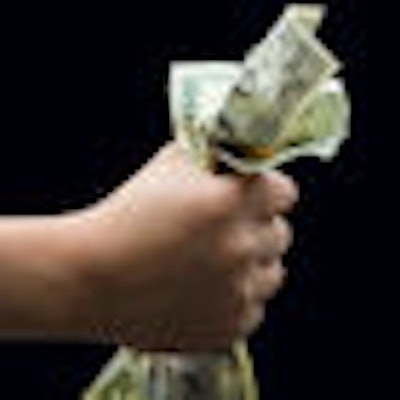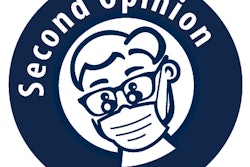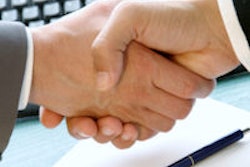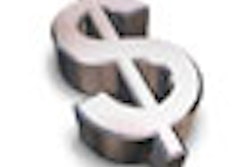
Nick Savastano, D.M.D., leads a busy orthodontics practice in Longwood, FL, often running at more than 85% capacity. But he still isn't satisfied with his productivity.
"I don't like having empty chairs," said Dr. Savastano, constantly aware of the fixed costs of his staff and building upkeep.
So Dr. Savastano has turned to an unconventional way to grow his business: bartering.
The ancient practice of swapping goods and services has boosted dental businesses across the U.S. Many dental practitioners are bartering directly with their patients and also joining barter networks, where they accumulate a special currency that can be used to purchase items from hundreds of other network members.
This results in increased incomes, expanded patient bases, expanded access to dental care for many patients -- and luxury items many dentists say they never dreamed they could afford.
“Dentistry is ‘our top requested service.’ ”
— Mary Jo Mangan, owner of Badger
Barter, Madison, WI
"I use barter to fill in the gaps," said Dr. Savastano, who does about $50,000 of business in trade each year. When dentists question why he bothers, he responds: "Would you rather have barter money or no money?"
At least 3,000 dental professionals -- including general dentists, oral surgeons, periodontists, and dental lab owners -- barter with their patients, said Alan Zimmelman, spokesman for ITEX, the largest network of barter exchanges in North America.
The ITEX network has 606 active dentists, and 335 dentists are in International Monetary Systems, another large barter group. And those numbers don't take into account those who barter directly with their patients or participate in one of several hundred independent barter groups.
For many dentists, bartering begins when an individual patient offers to give them something in exchange for dental work -- a proposition that is becoming more common during the recession.
One Massachusetts dentist said he suggested a barter deal to a patient who was having trouble paying his bill. He asked whether the man, a painter, wanted to pay off his debt by painting a few rooms in his home. The patient readily agreed.
While many deals with individual patients work well, others can be problematic. Dr. Savastano sometimes feels like he comes out ahead in negotiating directly with patients -- as when he got a $10,000 custom stone fireplace in exchange for $6,000 of orthodontia. But sometimes people will jack up the prices of their services, he said. And once, a customer who offered to make custom suits in exchange for braces refused to even start on the tailoring project until the dental work was complete.
Because of experiences such as this, Dr. Savastano now trades almost exclusively through a formal barter group. In such groups, dentists receive barter dollars for their work and can spend it with whomever they want in the network. If they want a service that isn't offered inside the network, a barter broker often will try to find someone in the community to provide it. One broker, for instance, found a doctor to provide fertility treatments on barter at a member's request.
The brokers' efforts come at a cost, however. The networks typically charge members transaction fees, which can be as high as 12% of the value of their barter purchases.
An economist might argue that participants in bartering services are simply using a form of alternative currency. That's more or less how Uncle Sam sees it; anyone who barters more than $600 in goods and services a year must pay taxes on the transactions. Also, it's illegal to charge a Medicaid patient more in barter than Medicaid would reimburse in U.S. dollars.
But many dentists still find bartering useful as a form of marketing. Ryaz Ansari, D.D.S., an oral surgeon in Manchester, CT, and past president of the city's dental society, recently joined a barter group because his business had stopped growing. Now, he gets people coming to his office from as far away as Long Island in New York, he said.
Dentists are often the most popular people on barter networks. Dentistry is "our top requested service," said Mary Jo Mangan, owner of Badger Barter in Madison, WI.
Dental labs offer services, too, giving dentists a chance to spend their barter dollars on lab work that some customers may reimburse them for in cash.
And some people seem more willing to spend barter dollars than U.S. currency. "I look at it as Monopoly money," said Randy Pane, D.D.S., a dentist in Reno, NV, who has used his barter dollars to maintain his office, stay at fancy hotels while attending dental courses, and splurge on such items as a Jacuzzi for his home.
But for him, part of the benefit is being able to treat patients who otherwise are unable to afford dental care. "This helps give back to the community," he said.
Copyright © 2009 DrBicuspid.com



















